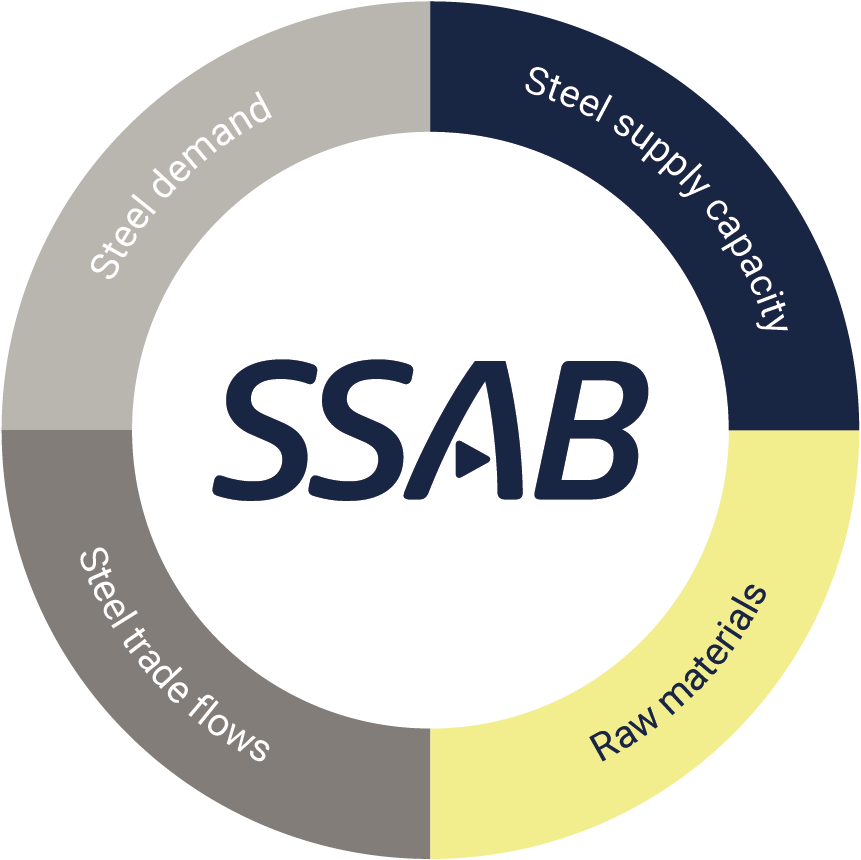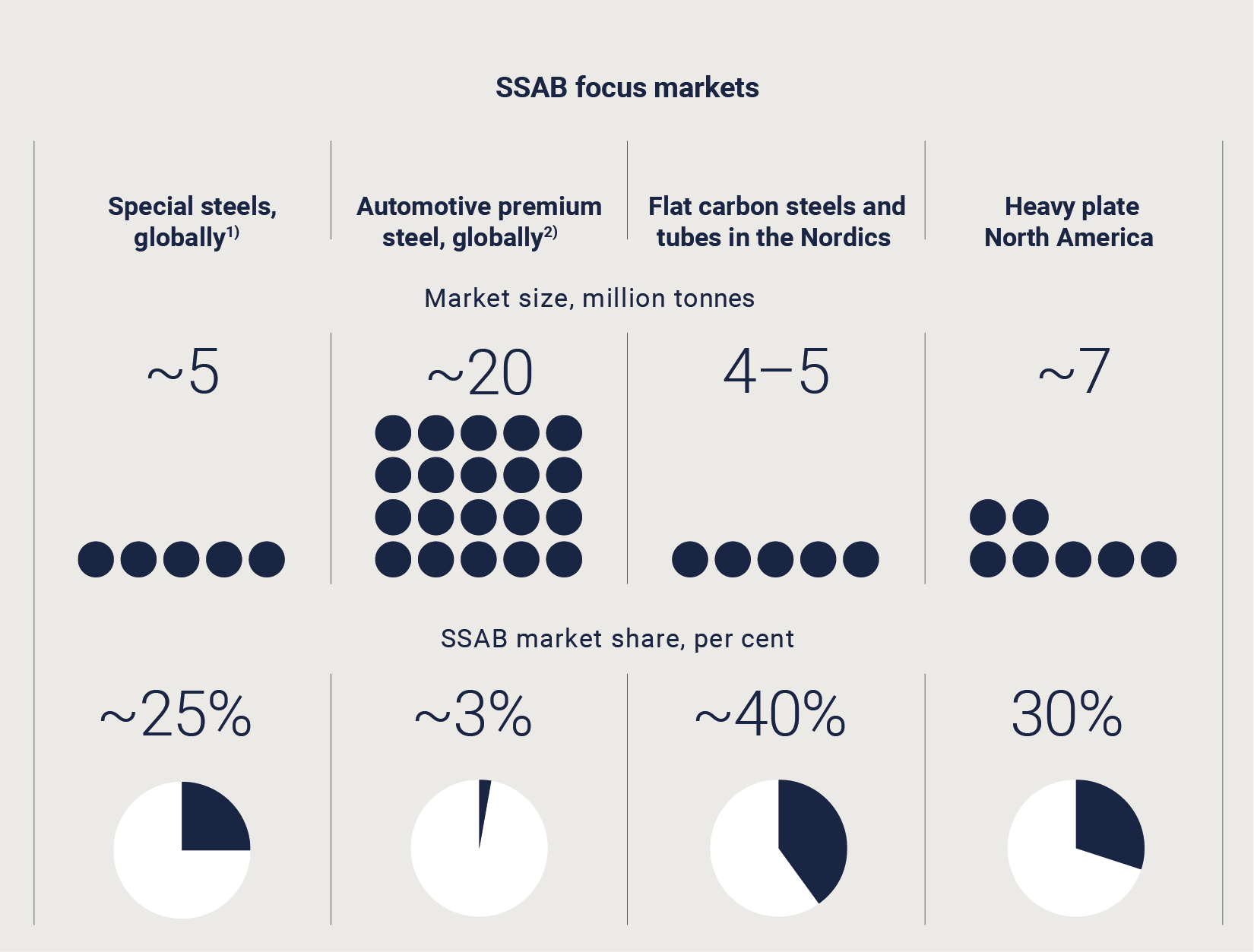Steel market and SSAB's position
Despite the economic and geopolitical unrest in the world, the driving forces on the global steel market continue to be favorable for SSAB.
Despite the economic and geopolitical unrest in the world, the driving forces on the global steel market continue to be favorable for SSAB.


SSAB is present in the flat carbon steels segment (steels with some carbon content) that are rolled into flat products. With an annual crude steel production capacity of around 8.8 million tonnes, SSAB is a minor actor on the global steel market, but has leading positions in four defined segments. These segments account for around 2% of the global carbon steel market:
Besides being a steelmaker, SSAB is also a steel and non-ferrous metal distributor via its subsidiary Tibnor and offers steel-based building products via its subsidiary Ruukki Construction.
Customer segments include heavy transport, construction and infrastructure, industrial applications, construction machinery (including lifting), energy and material handling (including mining). We also sell standard steels to a certain extent on our home markets, the Nordics and North America, through distributors and service centers. SSAB has its own sales channels in 50 countries.